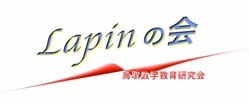Tatsuya Mizoguchi’s Website




-
Full Professor in Mathematics Education
Department of Education, Tottori University - Japan

4-101, Koyamacho-minami, Tottori, Japan
Zip 6808551
Tel & Fax +81-857-31-5101
e-mail mizoguci@tottori-u.ac.jp
Main Research Theme:
Research in the didactics of mathematics with the Anthropological Theory of the Didactic
-
‣Curriculum Development of Functions and Equations in the Middle School Mathematics
-
‣Curriculum Development of Mathematical Proof in the Secondary School Mathematics
-
‣Lesson Design and Analysis by Means of the Notion of Epistemological Obstacle [Summary]
-
‣Cross-Cultural Study of Lesson Study in Mathematics
-
‣Mizoguchi, T., Matney, G. & Wagner, D. (forthcoming). Perspectives and issues of the notion of a good mathematics teacher. In: Isoda, M., Thien, L. M. & Toh, T. L. (Eds.). Teacher Quality: Challenges in Mathematics Education (tentative title). World Scientific Publishing Co.
-
‣Shinno, Y., Mizoguchi, T. (2021). Theoretical approaches to teachers’ lesson designs involving the adaptation of mathematics textbooks: two cases from kyouzai kenkyuu in Japan. ZDM Mathematics Education. (Online first) https://doi.org/10.1007/s11858-021-01269-8
-
‣Mizoguchi, T., Inprasitha, M., Changsri, N., Matsuzaki, A., Shinno, Y., Kunseeda, P., and Hayata, T. (2017/appeared in 2018). Japanese and Thai researchers’ ways of seeing mathematics lesson: A case study intended for the cross-cultural analysis of lesson study. Journal of Science and Mathematics Education in Southeast Asia, 40(2), 103-121.
-
‣Shinno, Y., Miyakawa, T., Iwasaki, H., Kunimune, S., Mizoguchi, T., Ishii, T., & Abe, Y. (2018). Challenges in curriculum development for mathematical proof in secondary school: Cultural dimensions to be considered. For the learning mathematics: an international journal of mathematics education, 38(1), 26-30.
-
‣Shinno, Y., Miyakawa, T., Iwasaki, H., Kunimune, S., Mizoguchi, T., Ishii, T., and Abe, Y. (2015). A theoretical framework for curriculum development in the teaching of mathematical proof at the secondary school level. Proceedings of 39th Psychology of Mathematics Education conference, Vol.4, pp.169-176.
-
‣Mizoguchi, T. (2015). Functions and equations: Developing an integrated curriculum with the required mathematical activities, Proceedings of the 7th ICMI-East Asis Regional Conference on Mathematics Education (EARCOME7), 625-637.
-
‣Mizoguchi, T. (2014). Function and Equation as Tools for Future Construction, Proceedings of the he 7th International Conference on Educational Research (ICER2014), 430-441.
-
‣Yamawaki, M., Yamamoto, Y., & Mizoguchi, T. (2013). Research on Development of Integrated Curriculum for Function and Equation in Middle School Mathematics: Based on lesson studies of the 8th and the 9th grades. Journal of JASME Research in Mathematics Education, 19(2), 185-201. (in Japanese)
-
‣Mizoguchi, T. (2013). Design of problem solving lesson and teacher's assistance: Based on refining and elaborating mathematical activities, Proceedings of the 6th East Asia Regional Conference on Mathematics Education (EARCOME6), vol.2, 194-283.
-
‣Mizoguchi, T. (2012). A Note of my past works on the notion of epistemological obstacle in mathematics education, Tottori Journal for Research in Mathematics Education, 15(2), 1-8.
-
‣Mizoguchi, T., Yamamoto, Y., Yamawaki, M. & Nakata, K. (2012). FUNCTIONAL GRAPH AS A POWERFUL TOOL IN MATHEMATICAL PROBLEM SOLVING: ITS CURRICULUM AND INSTRUCTION, Tottori Journal for Research in Mathematics Education, 15(1), 1-8.
-
‣Mizoguchi, T. (2010). Activities in the Tentative Suggested Course of Study and Mathematical Ways of Thinking. Journal of Japan Society of Mathematical Education, Special Issue (EARCOME5), 18-19.
-
‣Mizoguchi, T. & Matsumoto, T. (2008b). The design of the lesson intended for the second grade students’ generalization in the figurative algebra: A cooperated lesson design and the practice by the university researcher and the teacher of the attached elementary school. Regional studies/Tottori University Journal of the Faculty of Regional Sciences, 5(2), 129-139. (in Japanese)
-
‣Mizoguchi, T. (2008a). Designing the Problem Solving Lesson as an Organization of Students’ Mathematical Activities: For Developing the Grounding of Creativity. Regional studies/Tottori University Journal of the Faculty of Regional Sciences, 4(3), 309-326. [rs043_04.pdf]
-
‣Mizoguchi, T. (2004). A study on the evolution of students' conceptions in the didactical situation. Annual Reports of Center for Education and Society, Tottori University, 13, 31-41. (in Japanese) [abstract]
-
‣Mizoguchi, T. (2003). An epistemological obstacle related to the equal symbol and to the notion of equality. Tottori University Journal of the Faculty of Education and Regional Sciences/Educational Science and the Humanities, 5(1), 25-34. (in Japanese) [summary]
-
‣Mizoguchi, T. (2000). Mathematical activities and assessment. Tottori Journal for Research in Mathematics Education, 2, 33-41. (in Japanese)
-
‣Mizoguchi, T. (1999). Constructing a framework for students’ conceptual change of the equal symbol in school mathematics. Tottori University Journal of the Faculty of Education and Regional Sciences/Educational Science and the Humanities, 1(1), 195-203. (in Japanese) [abstract]
-
‣Mizoguchi, T. (1995b). A study of the significance of overcoming epistemological obstacle to the learning of mathematics: Focus on the learner's way of concerning with epistemological obstacle. Bulletin of Institute of Education, University of Tsukuba, 20 (1), 37-52. (in Japanese) [abstract]
-
‣Mizoguchi, T. (1995a). Featuring the process of overcoming epistemological obstacle by categories of description: A case of the notion of limit. Journal of Japan Society of Mathematical Education: Reports of Mathematical Education, 63/64, 27-48. (in Japanese) [abstract]
-
‣Mizoguchi, T. (1993). On shifting conviction in conceptual evolution, Proceedings of the 17th International Conference for the Psychology of Mathematics Education, vol. 1, 260-267.
-
‣Mizoguchi, T. (1992). A hypothetical model for overcoming epistemological obstacle: Focus on the notion of limit, Tsukuba Journal of Educational Study in Mathematics, 11-B, 37-47.
Some of my papers
-
■JASME| Japan Academic Society of Mathematics Education


